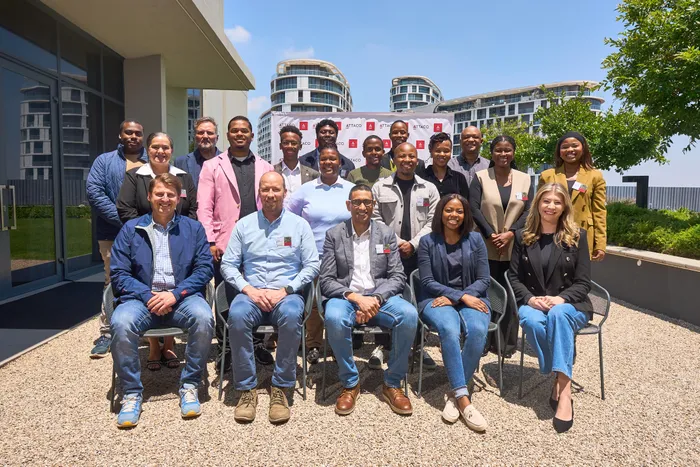
Ten black owned South African enterprises joined the 2025 Green Seeds Competition, a national accelerator driving sustainability, innovation and transformation in the property and built environment sectors.
Image: Supplied.
South Africa’s next generation of green entrepreneurs took a major step forward as the second Green Seeds Competition officially launched in Waterfall City on Wednesday. The accelerator programme had been designed to support emerging businesses driving sustainability and inclusive growth in the property and built environment sectors.
Co created by leading business accelerator Property Point in partnership with Attacq, the JSE listed real estate investment trust, Green Seeds supported black owned small businesses with commercially viable solutions to environmental and operational challenges. The new cohort of ten entrepreneurs from six provinces began a structured 12 month journey that included mentorship, design thinking support and pilot opportunities inside Attacq’s property portfolio.
The launch came as South Africa intensified its efforts to build climate resilience and unlock inclusive economic growth. With sustainability increasingly shaping business strategies, the programme aimed to develop a pipeline of investable green enterprises that showed how innovation could deliver both transformation and real world impact.
The 2025 cohort had been selected from a national pool of applicants based on innovation, scalability and their potential to create measurable environmental and social benefits. The group included House Harvest from Makhanda, innovating sustainable farming through solar powered aquaponics and eco friendly waste management, ATOK Aluminium Solutions from Polokwane specialising in sustainable aluminium products, and A1 ICT Trading from Mbombela which provided ICT solutions that drove smart business operations.
Other participants included IC AGRI PLASTIC and Letlotlo based in Rustenburg, GreenX from Stellenbosch, LEEP Solutions from Cape Town, Joburg Ash from Johannesburg, Greener Pastures from Benoni and OPS360 from Alberton.
Property Point Founder Shawn Theunissen said the programme focused on unlocking market entry and opportunity for high potential businesses.
“South Africa’s most powerful innovations are coming from small businesses solving big problems,” Theunissen said. “Through Green Seeds, we were helping those ideas grow into enterprises that could scale, employ and lead.”
He explained that the combination of technical business development and access to live pilot projects allowed founders to refine their innovations inside real commercial environments.
Attacq CEO Jackie van Niekerk said the partnership aligned with the company’s long term sustainability ambitions. “At Attacq, sustainability was part of our business strategy and values,” she said. “Through this partnership, we were investing in innovators who were helping shape the property sector’s future. When corporates opened doors for entrepreneurs, transformation became real.”
Van Niekerk added that the initiative demonstrated how enterprise development could be connected directly into corporate supply chains. “The real story here,” she said, “was that this model connected the dots between the green economy and enterprise development. It was about linking innovation at the margins to formal corporate value chains, something South Africa had been missing for years.”
The first Green Seeds cohort launched in 2024 already delivered tangible results. Its winner, Ingqwele Consulting, developed an energy management system projected to save Attacq R1.25 million annually through behavioural and data driven energy efficiency. The case had provided proof that local entrepreneurs could deliver measurable commercial change.
Participants in this year’s programme would complete business assessments, mentorship and pilot delivery before presenting market ready solutions at a Final Showcase in July 2026.
Theunissen concluded by noting the shifting relationship between corporates and entrepreneurship. “We were seeing a clear shift from corporate social responsibility to corporate co creation. Together we partnered to use our ecosystems as living laboratories for innovation, and that was how real change happened.”
BUSINESS REPORT